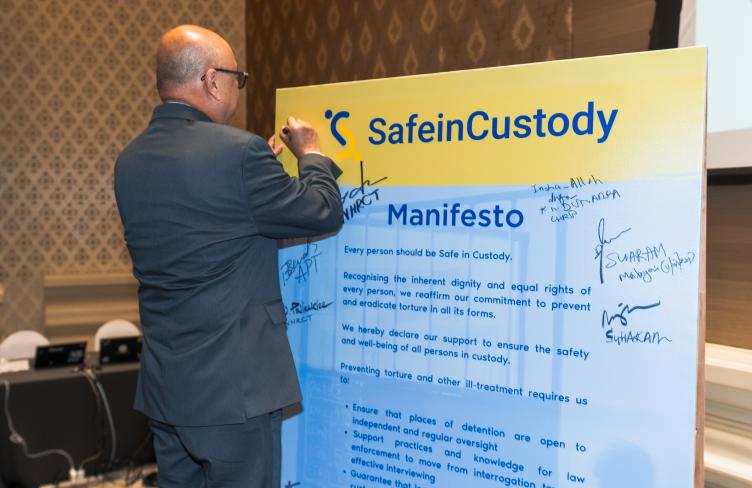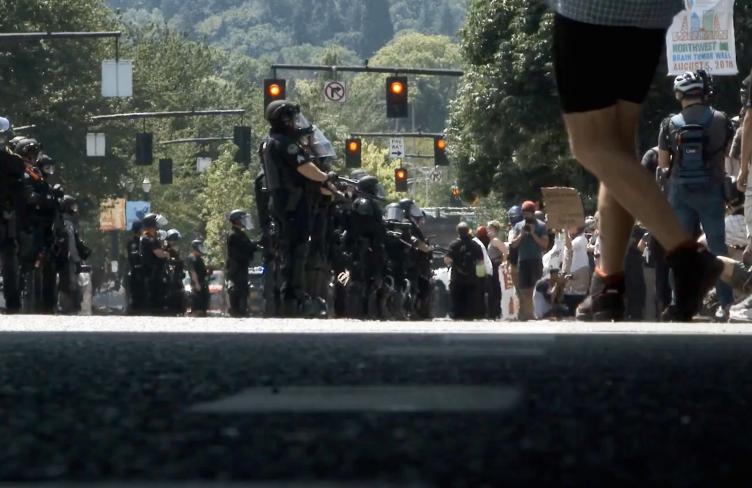
The APT applauds the crucial step taken by the National Congress of Brazil to strengthen the safeguards of all persons arrested by prohibiting the use of videoconferencing in custody hearings. The decision taken by the National Congress is the result of tireless advocacy efforts by numerous organisations from civil society, including APT and its partners, and public defenders’ offices.
Such a ban is essential to guarantee that custody hearings are a powerful tool for the prevention and investigation of torture and police abuse.
On 20 April 2021, the Federal Senate voted to overturn the Presidential Veto that had obstructed such a prohibition on the use of videoconferencing.
“The decision by the National Congress to impose a ban on videoconferencing in custody hearings is key to protecting the physical and psychological integrity of all persons under police custody in Brazil,” said Sylvia Dias, APT Senior Legal Adviser and Representative in Brazil.
“In a country where police violence and lethality has reached alarming rates, and which disproportionally affects black Brazilian youth, it is crucial that the State implement measures to safeguard the fundamental rights of persons in detention and to oversee police conduct.”
As the APT emphasised in an open letter to Senators ahead of the vote, custody hearings are “one of the most effective instruments for identifying and verifying evidence of torture and other ill-treatment in the first hours after arrest”, a time when detainees are at a heightened risk of torture or violence. However, to be effective, it is essential that a detainee be physically brought before a judicial authority.
In the open letter, the APT raised concerns that some custody hearings have been held using video equipment installed in police stations or prison units, and without the physical presence of a lawyer or public defender.
“Persons in custody give their reports in a hostile environment, without privacy, and may be in the presence of state security agents, even surrounded by their own torturers,” the APT said, adding that hearings held in such a manner make it “unfeasible for the magistrate to monitor any intimidation or coercion that the person in custody may be suffering”.
When COVID-19 hit Brazil, courts across the country began holding hearings – including custody hearings – using video technology. Data released by the National Council of Justice, demonstrated that with the suspension of in-person custody hearings, there had been an 83% decrease in reports of torture and ill-treatment upon arrest compared to pre-pandemic data.
Such a striking drop highlights how the face-to-face appearance of the person in custody before a judicial authority is essential to bring police violence to light, the APT noted in the letter.
Since the pandemic, the APT has been advocating, in close partnership with a number of Brazilian civil society organisations and public defense offices, that custody hearings observe the requirement for a detainee to be physically present before a magistrate.
- We identify and promote good practices to encourage face-to-face custody hearings. During the pandemic, nine Brazilian Courts of Justice had put in place biosecurity protocols that allowed for the resumption of in-person custody hearings. The experience in such states demonstrated that even during a major health crisis, it is possible to reconcile the right of the detainee to be brought before a judge within 24 hours of arrest with the preservation of the health of everyone involved. We produced a a three-part video series to showcase the adaptations made by these state courts to ensure the physical spaces and procedures were COVID-safe.
- We engage into high-level advocacy to promote face-to-face custody hearings. Last year, the APT was one of the very few organisations that participated in a Plenary Session of the National Council of Justice to argue against a resolution allowing custody hearings in Brazil to be held by videoconference during COVID-19.
- We join forces with national civil society organisations to mobilise international bodies, in particular the Inter-American Commission on Human Rights. We recently joined 66 civil society organisations to send an urgent appeal to the Inter-American Commission of Human Rights raising concerns that videoconferencing severely restricts the ability of a magistrate to identify whether a person has experienced torture or violence on arrest or in the first hours of custody
- We continue strengthening capacities of judges to implement custody hearings, even in times of pandemic, in partnership with the National Council of Justice.


